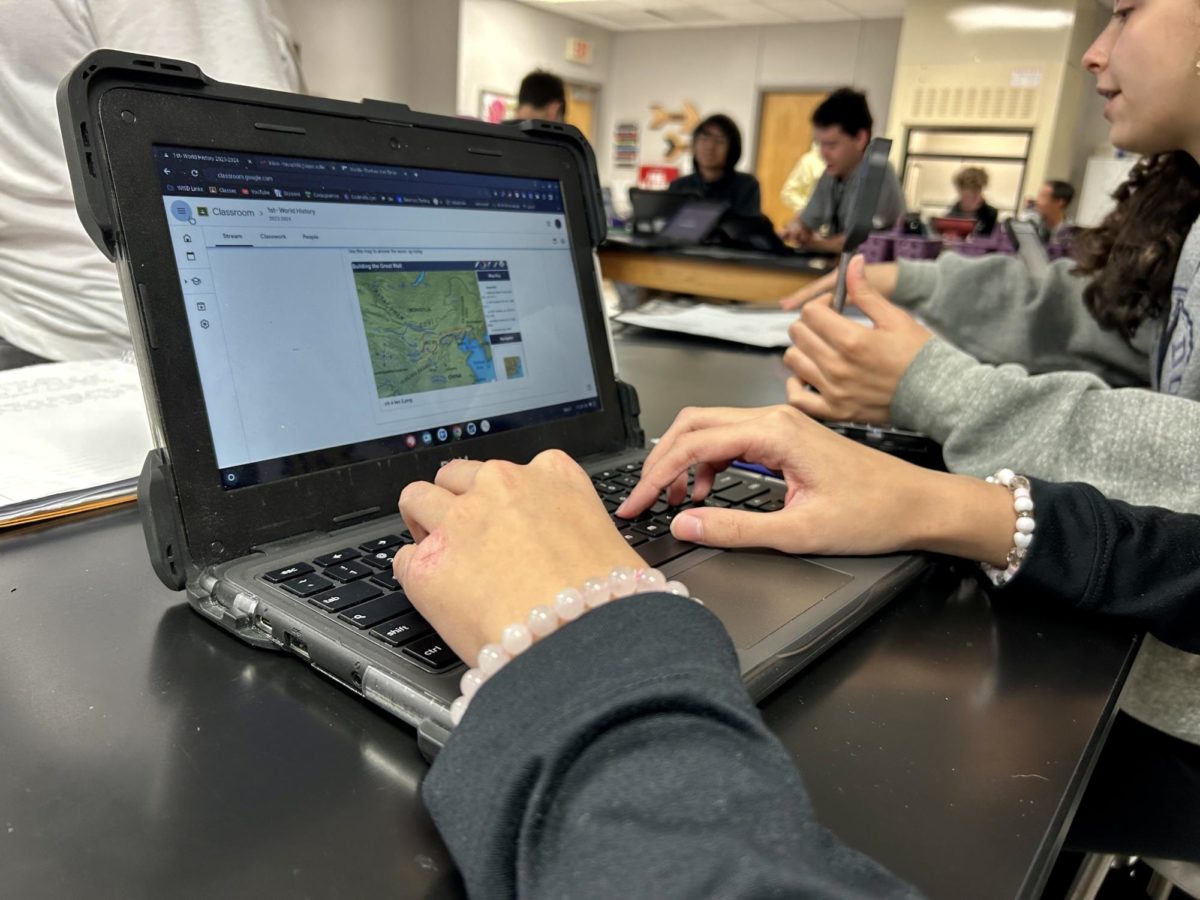The two years of the COVID-19 pandemic’s peak were wildly uncomfortable and an odd lapse in our normal lives. Some of us were able to resume our normal reality fast; getting back to school and seeing friends, while some of us much slower, spending a year learning online. Most of us, though, experienced a sort-of “lost year” of school, one where our opportunities and experiences were limited.
Now that our schooling has resumed back to normal though, what sort of long-term effects can we track? I decided to interview both teachers and students to get perspectives on how we’ve changed as students.
I first spoke to students, notably seniors and freshmen. Both of these groups experienced their so-called lost year during a transition period. Emma Zachary (senior), described the unfamiliarity of her experience.
“[School] felt so empty. Only a few kids were here, and it was hard because the teachers had to focus on both the online students and in-person classes,” Emma said.
She said she didn’t get to go to homecoming freshman year, go to any games, or participate in any extracurriculars.
“It was completely different from other people’s experiences. Not a change for the better,” Emma said.
When asked about students’ work ethics, Zachary said she thought we were less challenged as a whole.
“I feel like we don’t care as much [about school]. I feel like the teachers played a role because they made it easier for us, which isn’t necessarily a good thing because we were less challenged. We got the easy way out,” Emma said.
Talking to freshman Jacob Gomez, he was asked if he felt like he missed out on much due to the lockdown and he said he didn’t.
“I got more me-time,” Gomez said. I asked him if he felt students’ work ethics had decreased and he disagreed, “I think it depends on the student.”
Two teachers answered a few questions that were taught during the lockdown, both having to teach at-home and in-person students. AP World History teacher Brian Shultz, said he noticed, “increased disengagement and a big increase in cheating,” while teaching over zoom.
“When people came back I noticed an increase in adjustment problems, and an inability to adapt to the classroom environment. I think there was a lot of anxiety built up because of the zoom experience,” Shultz said.
Talking about work ethic and its changes, Mr. Shultz said he thinks it definitely declined, but is now improving.
“The first couple of years post-covid it was really bad, but I think that last year, and now this year, I’m starting to see an increase back to where things used to be,” Shultz said.
Madame Shelton, our resident french expert here at Wylie, said it was definitely difficult to teach over zoom.
“[the students] were not engaged whatsoever, and in something like a foreign language where you have to be engaged it was really hard,” Shelton said.
Shelton is also optimistic towards kids’ adapted work ethic though, and both Shultz and Shelton said they thought most kids were more excited to be at school post-covid.
Covid made things difficult for everyone. Teachers were spread incredibly thin, and everybody was trying their absolute hardest to just get through the year unscathed. Due to the pure exhaustion of that year, students’ work ethics have waned a bit. Learning online was wildly uncomfortable, while learning in person was stilted and weird.
These experiences have changed us as students, but we’re quickly adapting back, and possibly better than ever. Having such an abnormal couple of years has taught us to embrace what we have more, and has forced us to reflect more on our education.

